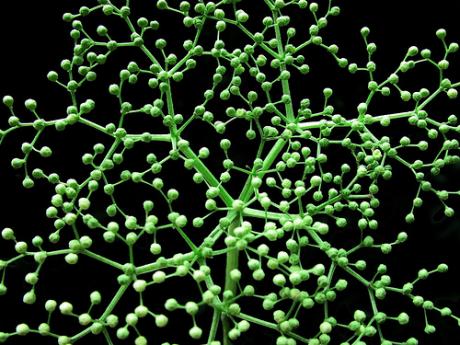به زبان فارسی
PICTORY
LATEST MUSIC
SEARCH
Social Contract, Social Capital, and Trust
by alborz
30-Sep-2009
The challenges we face as a people are many and this by itself does not differentiate us from other people, societies and cultures. We possess many noble qualities, such as hospitality, that differentiate and distinguish us. Yet for centuries our society has suffered because of characteristics that unless it is recognized and addressed the challenges we face will remain intractable.
Trust is both an emotional and a logical act that without doubt plays a significant role in the progress of a society. It increases predictability, encourages exchange of ideas and goods, and improves honesty. Predictability improves safety and with safety we can be more productive, independent thinking, and grow individually as a society. Our ability to exchange ideas and goods without fear of a loss or consequence no doubt will improve our economy and understanding of the world we live in. By being more honest, we expose our vulnerability and when that vulnerability is not taken advantage of, it further reinforces trust in society.
Social capital is the inherent value of the social connections within a group. We as Iranians value our connections socially but our social capital falls short of its potential. Often we have lamented our aversion to network with one another professionally or in business dealings. I surmise that lack of trust is at the root of our challenges here also.
Social contract is a person’s moral and political obligation towards one another. This typically manifests itself through representative government and the obligations that government has towards its citizens. Once again, we find ourselves coming back to the role of trust. Throughout history, and even today, our forms of governance have, but for brief periods, failed to function as the means by which the will of the people is expressed and implemented. No doubt this has heightened our lack of trust in any of our past and present forms of governance as being representative of the people’s will.
These definitions only serve to frame the very real challenges we face in the context of a moral imperative, namely trust. It is an act that needs to be nurtured, modeled, and reciprocated. It is regenerative. An act of trust begets more trust. Our ability to improve our social capital depends on it. When our social capital rises, its potency in transforming the mechanisms of governance increases. Trust can be the enabler and its absence the main obstacle to these transformations.
Where can we begin but with ourselves?
Alborz
| Recently by alborz | Comments | Date |
|---|---|---|
روشن فکری و یا نو اندیشی دینی - پرگار بیبیسی | 1 | Oct 02, 2012 |
| Attacks on the Bahai's | 6 | Sep 15, 2012 |
از تاریخ شِکوه می کنم | 17 | Sep 05, 2012 |
RECENT COMMENTS
IRANIANS OF THE DAY
| Person | About | Day |
|---|---|---|
| نسرین ستوده: زندانی روز | Dec 04 | |
| Saeed Malekpour: Prisoner of the day | Lawyer says death sentence suspended | Dec 03 |
| Majid Tavakoli: Prisoner of the day | Iterview with mother | Dec 02 |
| احسان نراقی: جامعه شناس و نویسنده ۱۳۰۵-۱۳۹۱ | Dec 02 | |
| Nasrin Sotoudeh: Prisoner of the day | 46 days on hunger strike | Dec 01 |
| Nasrin Sotoudeh: Graffiti | In Barcelona | Nov 30 |
| گوهر عشقی: مادر ستار بهشتی | Nov 30 | |
| Abdollah Momeni: Prisoner of the day | Activist denied leave and family visits for 1.5 years | Nov 30 |
| محمد کلالی: یکی از حمله کنندگان به سفارت ایران در برلین | Nov 29 | |
| Habibollah Golparipour: Prisoner of the day | Kurdish Activist on Death Row | Nov 28 |




We all need to cross this bridge
by Seagull (not verified) on Thu Oct 01, 2009 06:25 PM PDTWhat has happened in the past should have no bearing on our personal tranformation, we are given fresh opportunities.Trusting in principles laid down for us is the guiding light.
Excellent analysis!
by Souri on Thu Oct 01, 2009 07:10 AM PDTUnfortunately we are more paranoid and distrustful than being optimistic towards others. This is the fruit of being culturally colonized by some super powers (Arabs, Russian, British) for decades. We don't trust others, because we are afraid of others. All the problem is that we think if we play openness, people will take advantage of it.
And even myself, I think the same way at the moment I am writing this lines! I think being vulnerable will make us weak to the eyes of others and they will take advantage of it. Will they take advantage really?